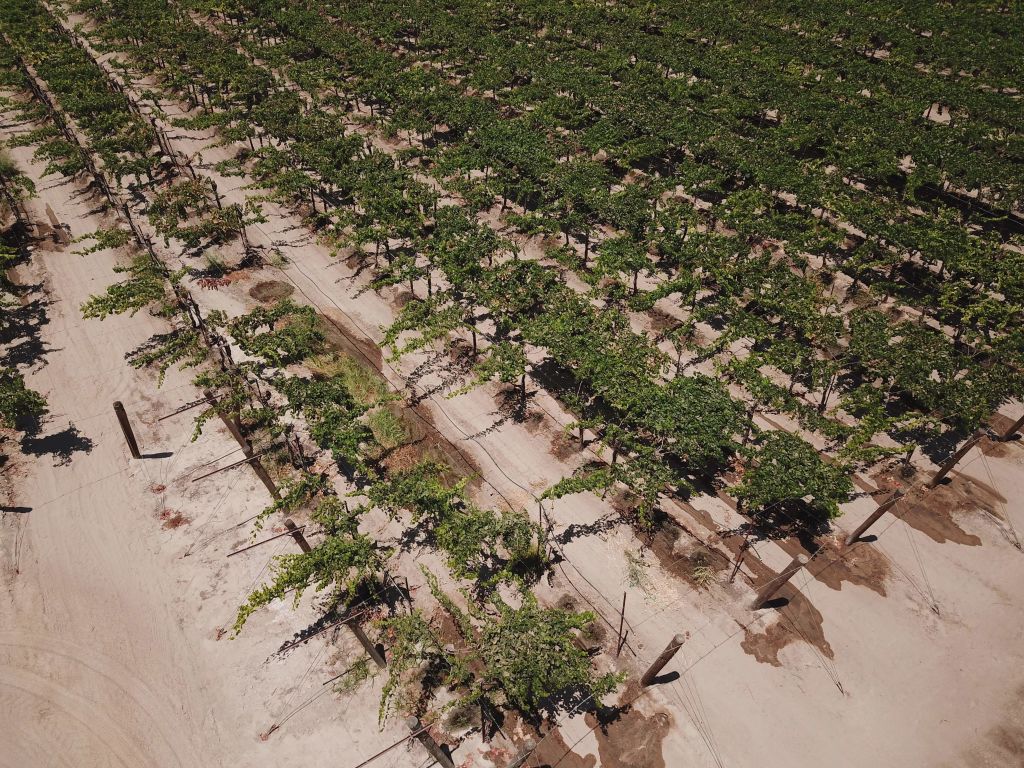Extreme heat and drought are crushing key crops and punishing U.S. farmers


A free daily email with the biggest news stories of the day – and the best features from TheWeek.com
You are now subscribed
Your newsletter sign-up was successful
As a summer full of extreme weather events broils on, U.S. farmers are watching their cash crops wither and blister under high heat and extreme drought conditions, The Wall Street Journal reports.
The price for staples like corn and wheat continues to rise amid increased demand, but farmers' ability to cash in on the opportunity remains hampered, first due to COVID-19 shutdowns and now to hot, dry weather affecting their output. For instance, about 63 percent of the country's spring wheat crop is currently in "poor or very poor condition, versus 6 percent at this time last year," writes the Journal. Meanwhile, North Dakota, South Dakota, Minnesota, Iowa, and Nebraska all "contain areas of extreme drought," and North Dakota and Minnesota in particular are experiencing "near-record lows in soil moisture," per the Journal.
The USDA has consequently scaled back its expectations for U.S. crop production in 2021, and, in turn, domestic inventories are shrinking. "The impact of the drought is clear," said Chip Flory, leader of the western leg of the Pro Farmer Crop Tour. "There's no way around that."
The Week
Escape your echo chamber. Get the facts behind the news, plus analysis from multiple perspectives.

Sign up for The Week's Free Newsletters
From our morning news briefing to a weekly Good News Newsletter, get the best of The Week delivered directly to your inbox.
From our morning news briefing to a weekly Good News Newsletter, get the best of The Week delivered directly to your inbox.
It's not just harvests in the U.S. that are suffering — worldwide grain inventories are "dwindling," reports the Journal. Drought has impacted both corn production in Brazil and wheat production in Russia, with the soil moisture in Russian wheat-growing regions at its lowest levels in a decade, says Andrey Sizov, head of a Russian agricultural research firm. "This season, dry July weather and smaller wheat area numbers were a game-changer for the Russian crop," he said. Read more at The Wall Street Journal.
A free daily email with the biggest news stories of the day – and the best features from TheWeek.com
Brigid Kennedy worked at The Week from 2021 to 2023 as a staff writer, junior editor and then story editor, with an interest in U.S. politics, the economy and the music industry.
-
 Local elections 2026: where are they and who is expected to win?
Local elections 2026: where are they and who is expected to win?The Explainer Labour is braced for heavy losses and U-turn on postponing some council elections hasn’t helped the party’s prospects
-
 6 of the world’s most accessible destinations
6 of the world’s most accessible destinationsThe Week Recommends Experience all of Berlin, Singapore and Sydney
-
 How the FCC’s ‘equal time’ rule works
How the FCC’s ‘equal time’ rule worksIn the Spotlight The law is at the heart of the Colbert-CBS conflict
-
 Nobody seems surprised Wagner's Prigozhin died under suspicious circumstances
Nobody seems surprised Wagner's Prigozhin died under suspicious circumstancesSpeed Read
-
 Western mountain climbers allegedly left Pakistani porter to die on K2
Western mountain climbers allegedly left Pakistani porter to die on K2Speed Read
-
 'Circular saw blades' divide controversial Rio Grande buoys installed by Texas governor
'Circular saw blades' divide controversial Rio Grande buoys installed by Texas governorSpeed Read
-
 Los Angeles city workers stage 1-day walkout over labor conditions
Los Angeles city workers stage 1-day walkout over labor conditionsSpeed Read
-
 Mega Millions jackpot climbs to an estimated $1.55 billion
Mega Millions jackpot climbs to an estimated $1.55 billionSpeed Read
-
 Bangladesh dealing with worst dengue fever outbreak on record
Bangladesh dealing with worst dengue fever outbreak on recordSpeed Read
-
 Glacial outburst flooding in Juneau destroys homes
Glacial outburst flooding in Juneau destroys homesSpeed Read
-
 Scotland seeking 'monster hunters' to search for fabled Loch Ness creature
Scotland seeking 'monster hunters' to search for fabled Loch Ness creatureSpeed Read
